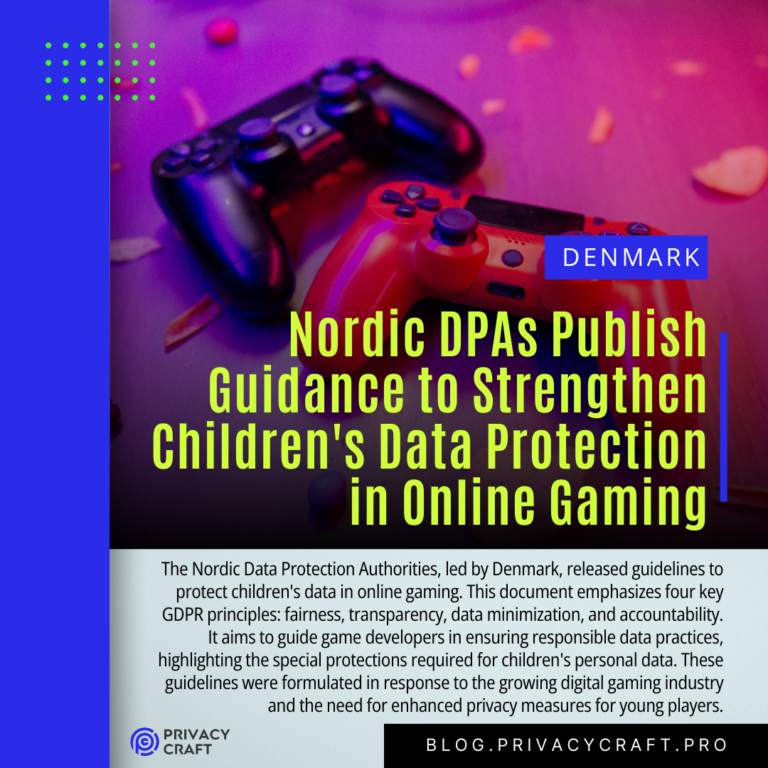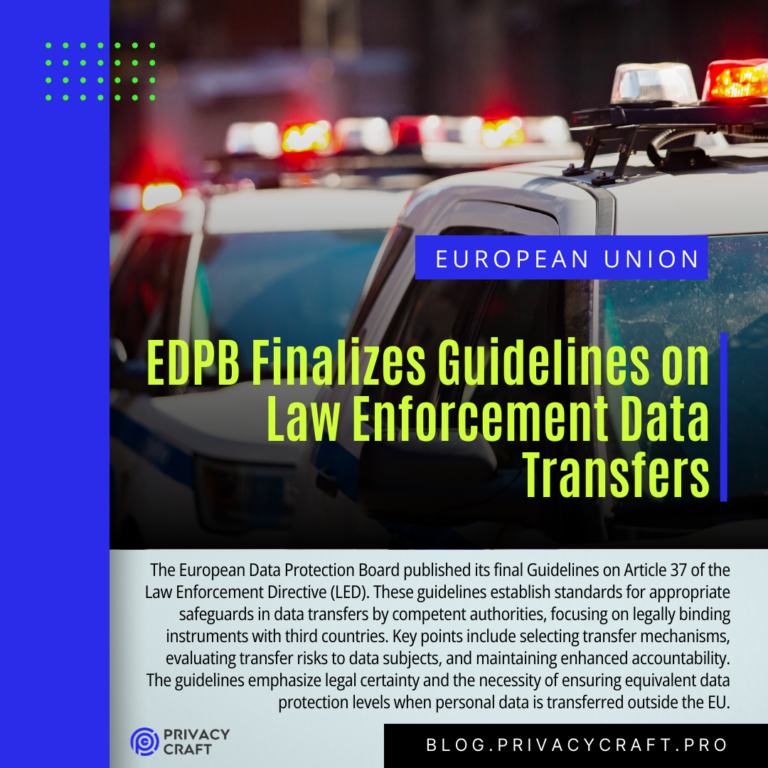Nordic DPAs Publish Guidance to Strengthen Children’s Data Protection in Online Gaming
The Nordic Data Protection Authorities, led by Denmark’s Datatilsynet, released guidelines to protect children’s data in online gaming. This document emphasizes four key GDPR principles: fairness, transparency, data minimization, and accountability. It aims to guide game developers in ensuring responsible data practices, highlighting the special protections required for children’s personal data. These guidelines were formulated in response to the growing digital gaming industry and the need for enhanced privacy measures for young players.
Nordic DPAs Publish Guidance to Strengthen Children’s Data Protection in Online Gaming Read More »

